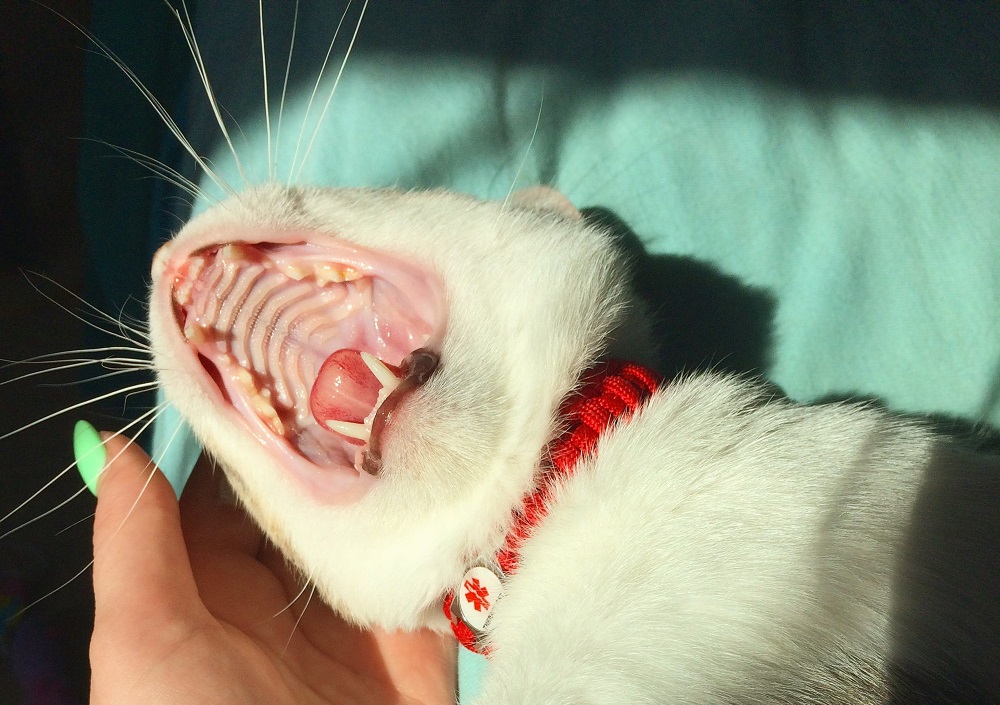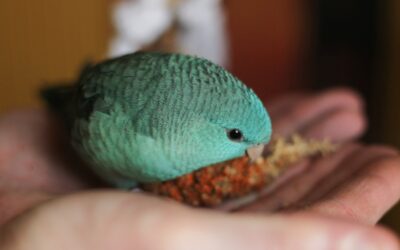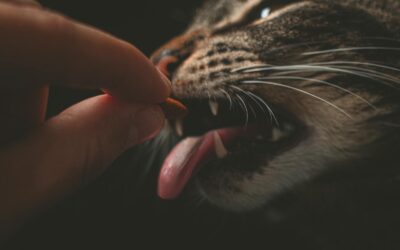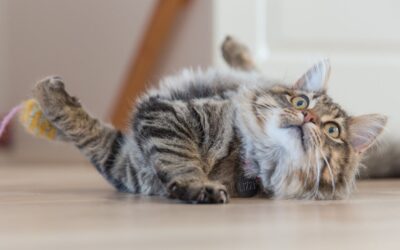How often do you think about your cat’s dental health? Between a healthy diet, playtime, litter box, water fountains and all the other important stuff, it can be easy to forget that our feline friends need their teeth kept clean as well. But why is this so important? And what should you pay attention to?
Keep reading for everything you need to know about cat dental care!
Why is cat dental care important?
Did you know that issues with teeth and gums are extremely common in domestic cats? A huge percentage of our feline friends, even the younger ones, suffer from problems like gingivitis (inflamed gums), tooth resorption (teeth breaking down) and tooth loss. One study found that a whopping 70% of cats older than 3 suffered from one or more of these issues. Periodontal disease is actually the most common ailment in cats.
How is this possible?! Do cats in the wild just die from dental disease all the time? Not exactly. Although tooth issues can be dangerous for wild felines, they don’t struggle with the negative results of plaque build-up like their domestic cousins do. Their teeth stay clean through regular gnawing on bones and other tough foods as well as grass, and the types of food they eat don’t carry a high risk of causing dental disease. Our house cats’ diets are much higher in carbs.
In many cases, dental problems in cats go mostly unnoticed, because they tend to hide any discomfort. You may not even realise your cat’s mouth is hurting. If things do progress to a point where intervention by a veterinarian is necessary, your cat may end up losing important teeth or even develop issues in other places in their body. It’ll be a major sting in your wallet as well, as these procedures can be very costly.
So what can you do? As with most things in life, prevention is key. In this case, that means prevention of plaque build-up. And yes, unlike what many cat owners think, you can actually do a lot to keep your pet’s teeth clean!
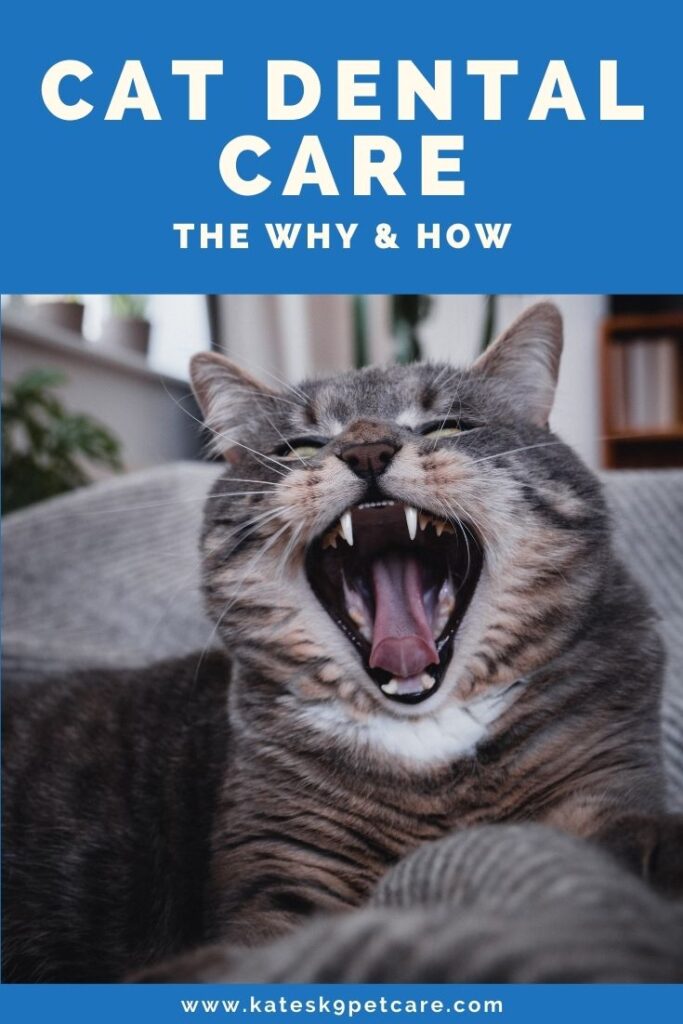
Brushing cat teeth
You may be wondering if we really just said ‘brushing cat teeth’. Doesn’t kibble help keep their teeth clean? Aren’t there oral care treats like the ones frequently seen for dogs? The answer to the first question is no, according to most studies, unfortunately not.
The answer to the second is, well, there are some options that may help, but brushing is still the absolute best way to provide good cat dental care. Daily brushing is ideal, since plaque starts to harden into tartar after around 24 hours. If that’s not an option, try to at least clean your cat’s teeth a few times a week.
There are special finger brushes available, which are particularly great for getting your cat used to the whole tooth brushing thing. Some studies suggest that they’re not the most efficient, however, so if your furry friend is okay with a normal bristle brush, that’s definitely very helpful. You can even find meat-flavored toothpaste to help things along; don’t use toothpaste meant for humans. Toothbrushes and pastes should come with some instructions on how to get your cat used to them.
We’re well aware that this stuff just doesn’t fly with some cats, although you should always look into training options to see if you can get it to work. Your veterinarian may be able to help you out! If you get a kitten, be sure to start getting it used to tooth brushing right from the start.
Other cat dental care options
A 2017 study reviewed different options to improve feline (and canine) dental health. Unfortunately, folks just don’t tend to stick to the tooth brushing routine, even though it’s the absolute most effective thing you can do in terms of cat dental care. There aren’t really a lot of good alternatives out there, although some things might help.
The authors mention that a few options that yielded some reduction in plaque accumulation in cats included: oral hygiene wipes, special dental kibble (although we’re not a fan of feeding cats a kibble-heavy diet) and possibly dental chews. They also mentioned a xylitol water additive. If you’re interested in using any of these products to help keep your cat’s oral health in order, it’s definitely a good idea to discuss it with your veterinarian first.
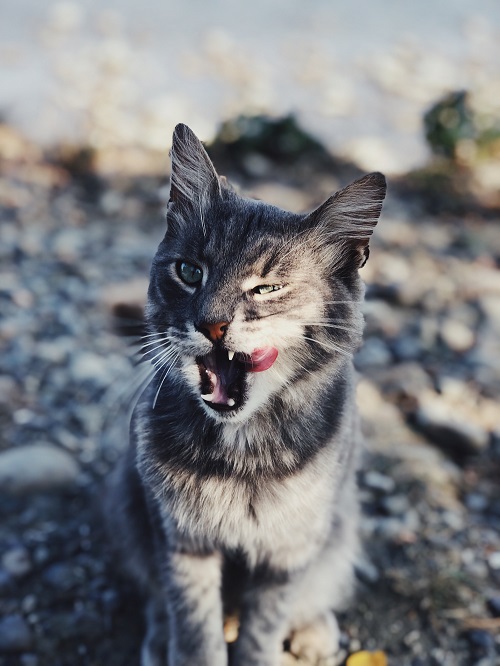
Does my cat have dental issues?
The best way to catch any oral and dental diseases early in cats is to take your feline friend for a yearly check-up and tooth cleaning. If they’re older, you may even want to opt for twice yearly, and if they have a history of serious dental issues it can be necessary to go every few months.
Having a vet look at your cat’s teeth is one of the only ways to figure out early if anything is going on because, as mentioned, cats just don’t really show many symptoms. A cat losing a significant amount of weight is one prime indicator that there might be something wrong with its teeth, although things will be pretty far along by this time. Sometimes you may be able to notice something off about the teeth and gums yourself as well: bleeding, swelling, extreme plaque build-up. Bad breath is another good indicator.
Conclusion
As you’ve hopefully concluded, feline dental problems are very common, but that doesn’t mean your cat has to suffer. Making cat dental care a regular part of your routine can go a very long way in preventing (gum) pain and tooth loss. Now go forth and brush!
Bellows, J. (2022). Feline dentistry. John Wiley & Sons.
Johnston, N. (1998). Acquired feline oral cavity disease. In Practice, 20(4), 171-179.

